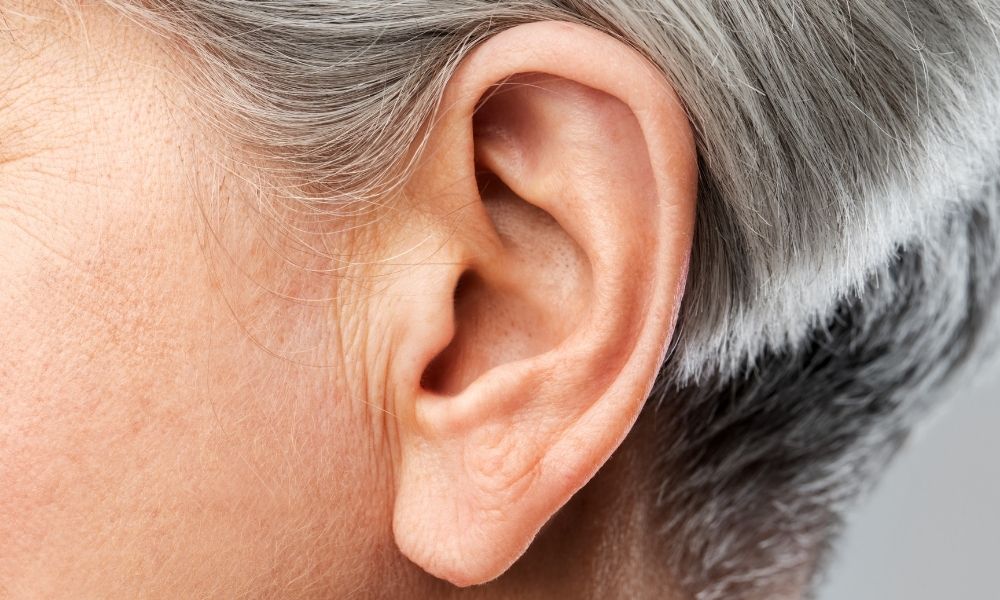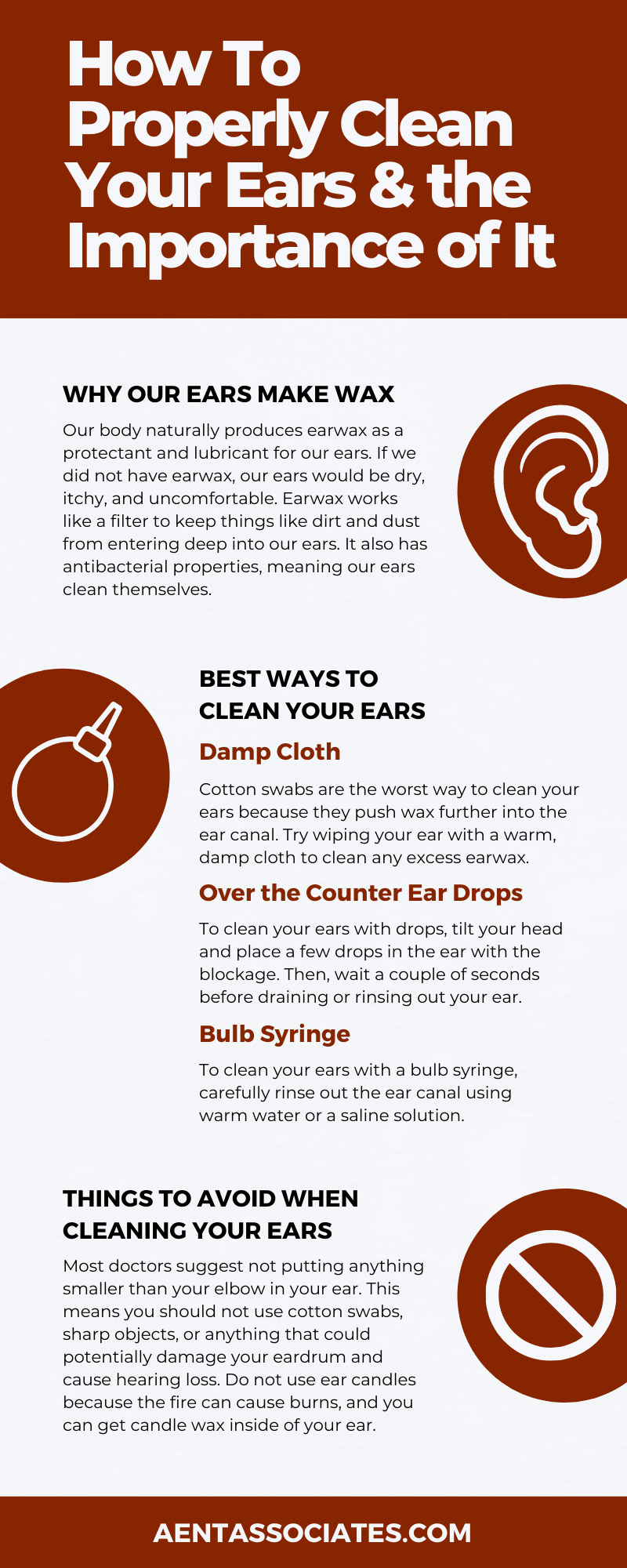
Knowing how to properly clean your ears is vital. Your ears are one of your most delicate body parts, and not practicing basic hygiene with your ears can lead to damage and hearing loss. Not thoroughly cleaning your ears can lead to ear damage. But what is the correct way to clean your ears?
There are various techniques for cleaning your ears. Some people use cotton swabs, while others use ear candles, and some do not clean their ears at all. Doctors recommend against putting anything inside our ears because our ears do a terrific job cleaning themselves and do not require extra care.
However, there are certain circumstances where you should clean your ears. For example, you may want to remove or soften built-up ear wax on the outside of your ear canals. If you are going to remove ear wax, you should do it carefully to avoid damaging your ears. Keep reading to discover how to properly clean your ears and the importance of cleaning your ears correctly.
Why Our Ears Make Wax
Why does earwax form? Cerumen, also known as earwax, is the culprit of our cotton swab and ear candle cleanses, but earwax is actually healthy. Our body naturally produces earwax as a protectant and lubricant for our ears. If we did not have earwax, our ears would be dry, itchy, and uncomfortable. Earwax works like a filter to keep things like dirt and dust from entering deep into our ears. It also has antibacterial properties, meaning our ears clean themselves.
Earwax does not form in the deep part of the ear canal; it is produced in the outer area of the ear. Every time you chew or move your jaw, old earwax moves out of the ear canal and makes its way to the ear opening, where it dries and falls out.
Sticking pointy objects like cotton swabs inside your ears can cause infections and hearing loss and even rupture your eardrum. It is not common for earwax to block your eardrum. Beware of cotton swabs—if you clean your ears with a cotton swab and push the wax deeper, you may create a blockage.
Earwax is normal in your ear canals, so you should only clean your ears if the build-up starts causing symptoms like muffled hearing. When excessive earwax builds and solidifies, you can develop an ear infection or impaction.
Impaction is rare but happens when your ear canal is filled with earwax in one or both ears. The symptoms of impaction are:
- Feeling like your ears are plugged
- Pain in your ear
- Partial hearing loss
- Tinnitus or ringing in your ear
- Coughing
- Itching, smell, or discharge coming from your ear
Best Ways To Clean Your Ears
The proper way to clean your ears is to visit your local audiologist and allow them to clean your ears carefully. Your doctor will use special devices to clear ear blockages. The talented Houston audiologists at Allergy & ENT Associates can clean earwax blockages and evaluate your ears to ensure there is no damage.
However, if you decide to remove earwax at home, what are you supposed to clean your ears with? Check out the best and worst ways to find out more. Here are the safest ways to clean your ears:
Damp Cloth
Cotton swabs are the worst way to clean your ears because they push wax further into the ear canal. Try wiping your ear with a warm, damp cloth to clean any excess earwax.
Over the Counter Ear Drops
Many grocery stores and pharmacies sell OTC ear drops that help soften and break down built-up earwax. These drops may contain:
- Baby oil
- Peroxide
- Hydrogen peroxide
- Saline
- Glycerin
- Mineral oil
To clean your ears with drops, tilt your head and place a few drops in the ear with the blockage. Then, wait a couple of seconds before draining or rinsing out your ear. Always read the instructions on the package, and contact your doctor if you have any questions.
Bulb Syringe
To clean your ears with a bulb syringe, carefully rinse out the ear canal using warm water or a saline solution. This technique is often more successful if you use an earwax dissolver or softener 15-30 minutes before using the syringe.
Things To Avoid When Cleaning Your Ears
While it is essential to know how to clean your ears properly, it is also important to know what to avoid when cleaning your ears.
Your ears routinely clean themselves and do not need help from us and our cotton swabs. Doctors do not recommend using cotton swabs to clean your ears; however, you may use them to wipe away excess wax or get rid of excess water after swimming. Just be careful to stay on the outside of your ear.
Small items like bobby pins, ink pens, or napkin corners can push earwax deeper in the ear canal, which can cause more build-up and impaction.
Most doctors suggest not putting anything smaller than your elbow in your ear. This means you should not use cotton swabs, sharp objects, or anything that could potentially damage your eardrum and cause hearing loss. Do not use ear candles because the fire can cause burns, and you can get candle wax inside of your ear.
How To Protect Your Ears
Taking care of your ears goes beyond keeping your ears clean. Here are some additional tips to protect your ears:
- Limit exposure to loud noises. Wear protective headgear or earplugs to save your ears from damage if you are in a noisy area.
- Take breaks from headphones or earbuds and keep the volume at an appropriate level. Do not raise your sound system too high in your car.
- Pay close attention to any ringing in your ears, balance issues, or hearing changes that may occur after taking certain medications.
- Dry out your ears after swimming to prevent an outer ear infection. Use a cloth to wipe your ears, and tilt your head to remove any water.
- When traveling in an airplane, yawn and swallow often when the plane lands to reduce the pressure in your ears.
If your ears still seem plugged, make an appointment with Houston audiologists at Allergy & ENT Associates. Our professional team can address hearing loss or other concerns.




